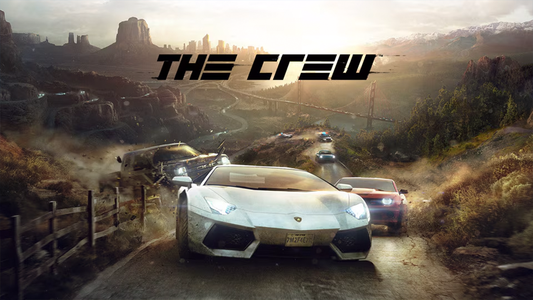This week, our partnership with game criticism site Critical Distance brings us picks from Lindsey Joyce on topics ranging from the 26 year incubation of Wasteland 2 to a serious examination of Sonic the Hedgehog. At All Costs This week brings us several sources interrogating the concepts of cost, monetary and otherwise, in relation to games. For instance, both Tami Sigmund and Casey Johnston take a look at free games in terms of their non-monetary costs: Sigmund examines the phenomena whereby casual and mobile players believe once you pay for a game it ceases to be a game, while Johnson examines how "real gamers" harshly judge games like Kim Kardarshian: Hollywood and its players while simultaneously spending and investing in freemium games like Hearthstone. Elsewhere, Solon Scott uses Zoya Street's Delay: Paying Attention to Energy Mechanics to discusses how marathoning games like Civilization demand players pay a physical and psychological cost while casual games like Candy Crush and FarmVille have been designed to encourage players to take breaks from the game. Flipping from player to developer, Guillaume Boucher-Vidal breaks down the costs - financial, emotional, time, social, etc - of operating an indie studio, and over at Eurogamer, Wesley Yin-Poole tells the story of the 26 years it took Brian Fargo to bring Wasteland 2 into existence. Keeping Up with Kapitalism Speaking of costs and Kardashians, this week brings us more analysis of Kim Kardashian: Hollywood through the lens of capitalism. Over at Gawker, Michelle Dean argues that the game, unlike Candy Crush, has a lesson to teach players: money doesn't buy things of value - for that you need energy and star power. Meanwhile, over at The Atlantic, Megan Garber observes that by refusing to sell anything but herself (as a thing, rather than a person), Kim Kardashian makes herself a rare but desirable commodity people are willing to pay for. "Empathy, Empathy, Put Yourself in the Place of Me" This week, at First Person Scholar, Steve Wilcox argues that rather than moving us toward a ludic future in which we become more aware of systems and patterns,
Games are inherently about developing empathy towards one another. This begins by thinking of games in the same way that others have thought about art in general: as a means of training the imagination to create new contexts in which to discover new knowledge.
Acting as wonderful support for Wilcox's argument, Asi Burbak discusses how developing Peacemaker forever changed how he thought about the Isreal-Palestine conflict, saying:
There is nothing more challenging than expressing empathy for the other side, especially when your side is under attack…In PeaceMaker, walking in another man's shoes is not only a concept; it's the heart of the simulation.
Conversely, Elena Cresci questions whether it is possible to base a game in a volatile real-world setting, such as Gaza, without belittling those involved in the conflict and concludes, using Peacemaker as an example, that when dealing with complicated subject matter it is essential for the designers to make their intentions clear. Elsewhere, Daniel Nye Griffiths catalogs several games and how they are being used to change real lives, including newsgames such as those discussed by Cresci and Burbak. So Many Feels Discussing how games touch our emotions, Carli Velocci writes about how choices are presented in The Walking Dead and the ways in which such choices can lead to character deaths, initially agitate her social phobia leading to panic attacks, but also eventually help her to combat anxiety by allowing her to become more confident in her choices, including what to say in conversation, over time. Finally, Kenneth Chen examines the intrinsic motivator of guilt while playing the MMO Warframe and discusses how acknowledging guilt as a game motivator has changed his design philosophies. Story Mode For those of us who enjoy a good game story, this week brings numerous articles discussing innovations (and, in some cases, failure) to tell the player a good story. Paul Shumann, for instance, takes a look at the way Betrayer, an FPS game, employs a novel listening mechanic in order to focus both mechanics and story on a respect for history, faith, and humanity. Over at PopMatters, G. Christopher Williams discusses how Sepulchre quite literally puts its game on rails in order to tell a horror story about frustrated progression. Careful, this article contains spoilers! Elsewhere, Critical Distance's own Eric Swain indulges in the minor story moments by discussing (with spoilers) two moments near the end of Quest for Infamy that add important character dimension to Roehm, the player character. Sam Z. writes about the story in Transistor (spoilers here too) and how the love story of this digital game lightly critiques the digital world. Daniel Galera has a wonderful long-form read this week that lets you relive the wonder of Prince of Persia while simultaneously making poignant observations about agency, algorithms, youth, love and more. Zolani Stewart, who has also recently joined the Critical Distance team, brings us another long-form read this week about the history of Sonic The Hedgehog and his status as a fluid media object moving between mascot and fully realized character. Finally, Perter Christiansen uses Dwarf Fortress and its allocation of processing power to craft narratives to trace the historical paths computer have taken to be better simulators of physic than creators of story. Adventure Games Do you like Adventure Games? Do you know their long and stories history? Leigh Alexander does and her most recent Let's Play is of the "pure" adventure game, Curse of Crowley Manor. Speaking of historical adventure games, Emily Rose and Pierce Huxtable talk with Roby Miller about the story and score of one of the most popular adventure games ever: Myst Let's Talk About Sex [and Gender], Baby
No tags.





































